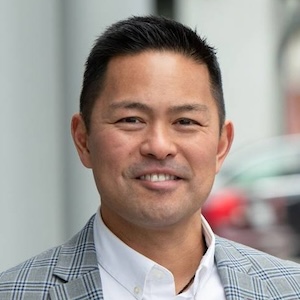KQED offers voluntary buyouts, prepares for layoffs

Jason O’Rear / KQED
KQED's headquarters. (Photo: KQED)
KQED in San Francisco offered buyouts to staff earlier this month, according to an email obtained by Current, and aims to stabilize its financial position and seek a path towards sustainability.
“While individual contributions are up, we are faced with downward industry trends in corporate sponsorship and underwriting as well as in foundations and grants,” said CEO Michael Isip in a June 4 email to staff. “This is exacerbated by threats to federal funding. With our expenses projected to outpace our revenue growth and given our budget deficit, we are in the process of making budget reductions which will include layoffs. We are aiming to complete this process by mid-summer.”
A spokesperson for KQED declined further comment.
The deadline to request a buyout was Friday. Any employee could request a package, though Isip said each request “will be reviewed individually, balancing operational needs with the savings we must achieve.” Employees who are laid off will receive the same package.
Isip discussed the financial challenges during an all-staff meeting Wednesday, according to a video of the speech obtained by Current. He said the station’s board has supported investments aimed at growth, such as the acquisitions of Snap Judgment and Spooked in 2023, by approving budget deficits for the last three years.

“This year, the budget deficit is $12 million. Our assumption was that this spending growth would be matched by more sizable growth in revenue,” he said, adding that Snap Judgment and Spooked have helped the organization double its podcast downloads and podcast-related underwriting revenue.
“But here’s the reality: Public media, we have not yet developed a sustainable national local membership model on digital platforms,” Isip said. “And even on the commercial side, commercial outlets are struggling and shifting between advertising and subscription-based business models.”
Now that KQED has spent some of its cash reserves and has had to decrease revenue projections, it must make more cuts on top of a staff reduction last year. The station cut 19 staffers, and another 11 took early retirement or voluntary buyouts. It also ended production of Rightnowish, a podcast covering Bay Area artists.
“Even though our revenue teams are hitting our overall total revenue goal, we have not been able to make any progress in reducing our deficit,” Isip said during the meeting. “Our revenue growth over the last 8 years has been 3.2%. Our expense growth over that same period has been 4.7%. So we need to take action with all that’s coming at us to mitigate risk. So the goal this time around is to go deep with expense reductions and eliminate our deficit as it stands now.”
In preparation for the restructuring coming as early as mid-July, Isip said he is leaving three positions vacated by recent or upcoming departures. Holly Kernan is leaving her role as CCO to become CEO of Nashville Public Radio. Maria Miller, chief operations and administration officer, is also leaving but will stay until the end of the current fiscal year, in part to help with negotiations for the next bargaining agreement with the National Association of Broadcast Employees and Technicians.
Eric Abrams, chief diversity, equity and inclusion officer, is also leaving but will remain until the end of August to work on a community representation report for CPB and to develop a DEI work plan for the next fiscal year.
In addition, Ethan Toven-Lindsey, VP of news, was named editor-in-chief; DeLinda Mrowka, chief revenue officer, will move to the role of COO to help manage day-to-day operations; and Vanessa Merina, VP of strategy and planning, will become VP of strategy and communications.
Bridget Barrett, general counsel and corporate secretary, will oversee all legal functions, including employment and labor relations, and will also oversee human resources and DEI work. Candace Rucker, manager of DEI programs, will be promoted to director of DEI. Meanwhile, CFO David Boutry will take on additional responsibilities.
Isip said KQED’s board has given him a mandate to “represent and raise the profile of KQED in the community.” He also said he aims to increase gifts from major donors, which some stations have found to be challenging.






